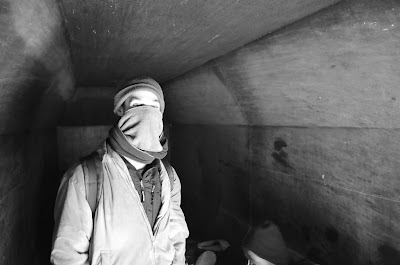Washington may
soon become the most recent state to approve same-sex marriage as the Senate passed a measure supporting it last
week and the House is soon expected to do the same.
The First Congregational Church of
Bellingham, a local congregation of the United Church of Christ, is located in the Lettered Streets Neighborhood at 2401
Cornwall Ave. and is one of the
Pastor Kent French says that many in his
congregation come to the United Church of Christ specifically because of its
progressive views on gay rights and social justice.
“There has been a renewed energy in our
denomination because so many people who claim to speak for Christians have come
out against gay rights,” French said.
“We want to speak out for those who believe God loves and accepts
everyone.”
French will be travelling to Mexico next week to perform
a marriage ceremony for a member of his congregation who happens to be in a
same-sex relationship, but when that couple returns to Washington they would
have to wait until June at the earliest for their marriage to be recognized by
the state.
French said that he has not yet been
asked to perform any marriage ceremonies in Bellingham but believes the future
might hold some.
He also said that on a national level
the leaders of the United Church of Christ have publicly applauded the reversal
of California’s controversial Proposition 8 a federal appeals court struck down
Tuesday.
The
“Prop. 8” ban on
same-sex marriage was ruled unconstitutional by the court and could mean the
case
“Proposition 8 served no purpose, and had
no effect, other than to lessen the status and human dignity of gays and
lesbians in California,” the court said.
As gay rights activists and allies celebrate
these two recent victories, opponents promise to fight both measures.
If they are unable to gather enough
signatures to mount a counter referendum on the November ballot, same-sex couples
could be marrying as early as this June.
If challengers to
the bill fail to get the required signatures Washington would join New
York, Vermont, Iowa, Massachusetts, Connecticut, New Hampshire, and the District
of Columbia in legalizing same-sex marriage.
Here in Washington Sen. Dan Swecker,
R-Rochester, spoke out on the Senate floor against the same-sex marriage bill.
“I believe
altering the definition of marriage will lead to the silencing of those who believe
in traditional marriage,” Swecker said.
“It’s ironic how a bill which purports to be about ending discrimination
leaves the door so far open to discrimination going the other direction. I am
extremely concerned that without additional protections, this legislation will
create a hostile environment for those who believe in traditional marriage.”
The
referendum would put the law on hold until the voters make their
decision in November and the General Election results are certified on Dec. 6.
Whatcom County
Auditor Debbie Adelstein, says that there is no wait listing going on for
same-sex marriages yet but her office would handle the future marriage certificates.
“We are waiting
for the passage of the bill, or not, and the state to give us direction as to
what forms and what things will be required,” Adelstein said.
Same-sex
couples in Washington may yet be able to plan a summer wedding and for those
looking to celebrate in a Christian church,
“No matter who you
are, or where you are on life's journey, you are welcome here,” French said.



